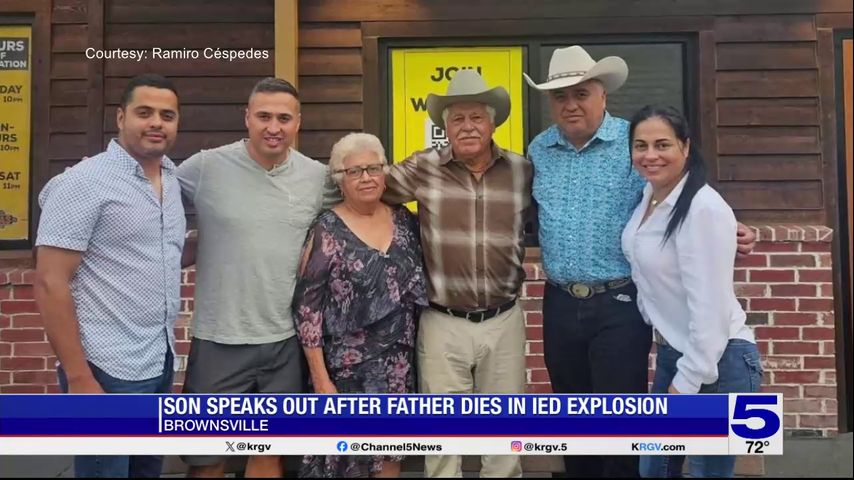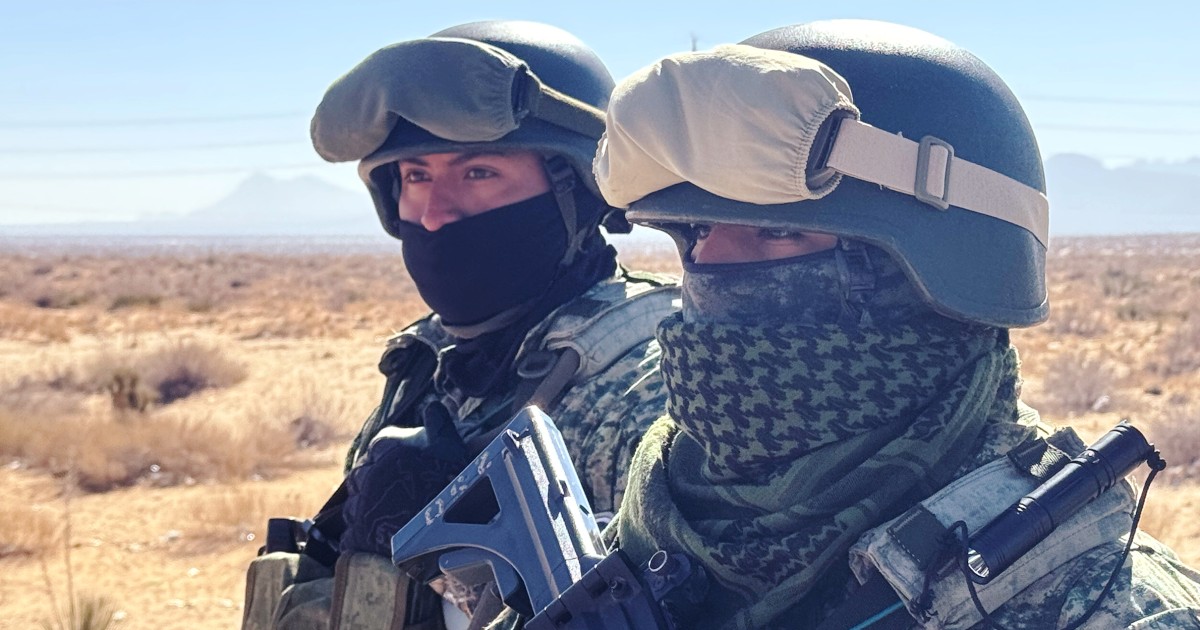
Mexico awaits US onslaught against cartels with little room for maneuver
Washington has displayed its power on the border with surveillance and reconnaissance missions
Mexico awaits US onslaught against cartels with little room for maneuver
Summarize
Washington has displayed its power on the border with surveillance and reconnaissance missions
Carmen Morán Breña18:55
U.S. Marines on the U.S.-Mexico border in Tijuana, February 6, 2025.
U.S. Marines on the U.S.-Mexico border in Tijuana, February 6, 2025.Jorge Duenes (REUTERS)
The U.S. military flights on the southern border of the United States — that is, at the very gates of Mexico — have been one of the most talked about events in recent days, but perhaps they hold no other meaning than the unilateralism that prevails in relations between the two countries in recent times. Had Donald Trump not won the elections, it would be another example of the discontent that his predecessor, Joe Biden, had been displaying regarding the results of the fight against organized crime, which culminated in the capture of Ismael “El Mayo” Zambada last July, unexpectedly and under cover of moonlight. But Trump is now in the White House and his campaign bravado is added to the commercial and security actions that have half the world in suspense, Mexico first and foremost given its great dependence on its northern neighbor. It will take months until the electoral sediment settles and the true intentions of the Republican are revealed, whose actions for now seem more like political gestures toward Americans and foreigners, both economically and in terms of security.
The caution shown by the Mexican government in its relations with the unpredictable president in this matter could be explained precisely as a political strategy, a wait-and-see stance while other more thorny issues, such as tariffs on the export of Mexican products, 80% of which travel to the United States, are definitively resolved. Claudia Sheinbaum’s administration displayed a more than moderate attitude when it came to light that U.S. aircraft were carrying out surveillance tasks in waters near the Baja California peninsula and the coasts of Sinaloa, among known flights. Secretary of Defense General Ricardo Trevilla said at first that it was unclear exactly what the intention of the aircraft was, but he assured that they were complying with international regulations and that, after all, Mexico is focusing on “prioritizing the border.” Trevilla described a subsequent conversation with the head of U.S. Northern Command as “cordial.” There was not much room for discussion, as Trump and Sheinbaum were negotiating the suspension of tariffs at the time.
A couple of days ago, the Mexican president limited herself to saying: “We are not alarmed. They are flying over their territory and what we are asking for is coordination and collaboration.” Only in that framework will transparency be requested. At first glance, or at another time, the fact that the U.S. military is blatantly flying over Mexico’s borders would cause logical alarm, although it is a mere political gesture inscribed in the chapter on threats. But caution has presided over Mexico’s statements: “It is not the first time there have been flights of this type, it’s not out of nowhere, it is part of necessary coordination and of the joint collaboration, and each one operates in its territory.”
The issue of territory also has its own analysis. In the wake of the Trump administration’s declaration of the Mexican drug cartels as terrorist organizations, one of the swords hanging over Mexico is the interference of U.S. troops or agents on Mexican soil, a possibility that had appeared to be off the table, although no one has yet clarified exactly what happened in the capture of El Mayo Zambada. Then, as now, intelligence operations do not seem as covert as they correspond to espionage and surveillance tasks against drug trafficking and, from the mysterious flights, the procedure that will be put in place during Trump’s term can be inferred: the fight against the cartels will enter the military orbit.
General Gregory Guillot, commander of the United States Northern Command and North American Aerospace Defense Command, has indicated that these are surveillance maneuvers against the cartels “to get more information on those and figure out how we can counter their actions.” In statements to the Senate, he acknowledged that they have permission from the Department of Defense to increase these missions, but also admitted that the knowledge gained is shared with Mexico, with whom, he added, cooperation has been increased to address violence derived from drug trafficking, “in terms of sending more troops” to the neighboring country, with fentanyl in mind. The Pentagon, he assumed, will need “significant increased maritime presence in cooperation with the Coast Guard.” The United States is showing its true colors.
“Unilateralism is here to stay and it will be difficult to work with a partner that does not provide any certainty,” says Carlos Pérez Ricart, a security expert at the Center for Economic Research and Teaching (CIDE). The researcher does not believe that tariffs will be imposed overnight, or that a drone piloted from who knows where will kill civilians in Sinaloa, for example. “I don’t know if it’s probable, but it’s possible; the possibility is real,” he says. “Trump sees in Mexico everything he does not want. You only have to see the ambassador he is going to send us, [Ronald Johnson] a green beret,” from the U.S. special forces against terrorism. “That is the level,” laments the researcher, who states that not since the Mexican Revolution has there been “such a level of mistrust and aggressiveness in the discourse of a president. Mexico does not seem to be a commercial partner, but the source of all conflicts.”
Of course, Trump’s bêtes noire all have a stopover in Mexico, whether it be organized crime, fentanyl, or migration, against which he has dedicated some of his most ominous words. Each of these issues — which could previously be treated separately — are now revealed to be thrown together in the same cause: a migrant, in the Republican’s imagination, can also be a criminal who kills, smuggles drugs into the U.S., or eats a neighbor’s dog and cat. Against this turbulent river, the military takes up their positions inside, outside, and on the border itself. In this formless plasma, the flights of the unknown can be framed. For now, says Ricart in reference to Trump, “they are political messages, inward and outward.” And, despite the fact that everyone talks about communication, cooperation and collaboration, the expert says he has information from which he assures that all this “has taken Mexico by surprise.” “It is difficult to collaborate like this,” he added, expressing his satisfaction with the role that Sheinbaum is playing “in such deplorable conditions.” What happens from now on, he laments, “will have to be seen day by day, hour by hour, tweet by tweet.”
Mexico is witnessing, says Pérez Ricart, “the darkest side of imperial politics,” that had been forgotten with economic development. “Now our dependence is absolute.”
Sign up for our weekly newsletter







